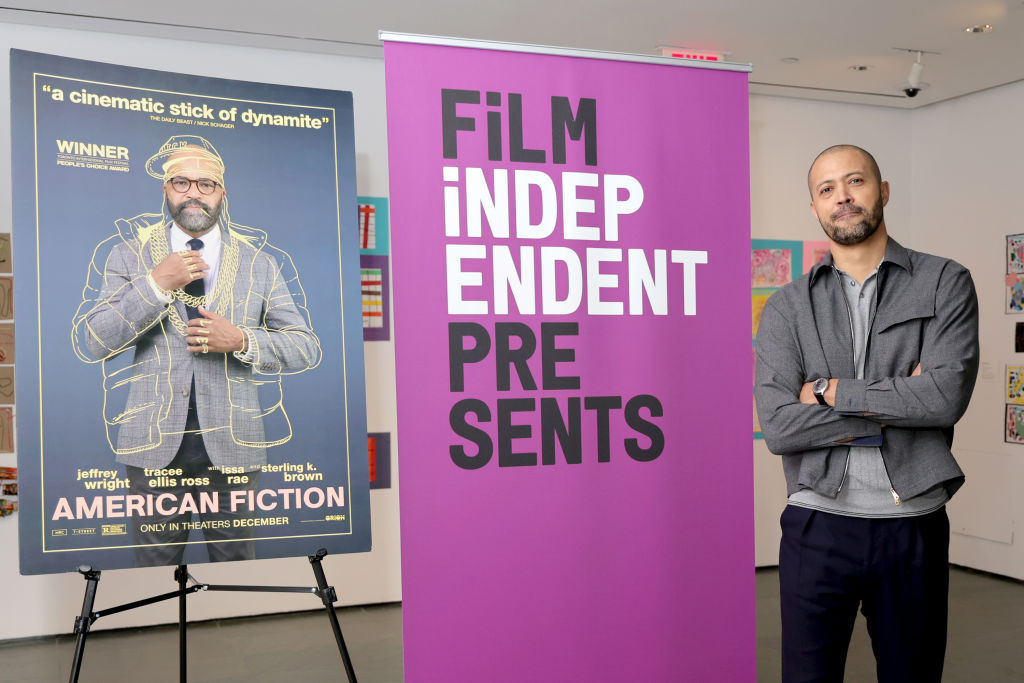American Fiction is a satire that discusses what Black art is and how Black people should interpret the art. First-time film Director Cord Jefferson is proof that if you believe in the story and if you have a great team around you, you can do all things great.
In conversation with EBONY, Cord Jefferson discusses being a first-time director, working with Jeffrey Wright and Black art.
EBONY: The first question in the movie is based on the book Erasure by Percival Everett. Has he seen the movie?
Cord Jefferson: He has seen the movie. He’s seen the movie a couple of times. After the first screening, he told me, “The thing that I liked about the film is that you made something that feels like it’s your own. You made a piece of art that stands on its own two feet.” That was a huge sigh of relief because I was terrified that he might hate it. Of course, you’re always worried that you’re going to sort of destroy something that the author once loved. It meant the world to me.
How much of your life did you write into American Fiction?
I have two siblings, so there’s a lot of our sibling dynamic that exists in the movie. We have an overbearing father figure, our mother didn’t have Alzheimer’s, but our mother did have cancer. The fake books at the, the sort of book titles at the end of the film when they’re judging the Book Awards — all of those book titles are names of my friend’s bands from high school.
Even Arizona?
So Arizona was in the book, which is another weird overlap that the book had with my life. In the book, the town that Cliff lived in is Scottsdale, Arizona, and I moved him to Tucson because that’s where I’m from. So yes, there are parts of me sprinkled throughout.
This film is your directorial debut. How did you approach every day on set?
I went in every day, and I surrounded myself with people who knew what they were doing on a technical level. I was in good hands with them. It was just a great collaboration because I felt like I understood the story. I won’t say that it was easy by any means. It was certainly the hardest thing that I’ve ever done, but it wasn’t as hard. If I was just directing to direct and sort of like wasn’t passionate about the story that I was telling, I think it would have been a much more difficult uphill battle.

I heard that the shooting of American Fiction was a run-and-gun movie. No rehearsals, correct? What was the production process?
Sometimes actors arrived in Boston and then were on set later that day, and then on a train back to New York later that night. It was very, very, very speedy. We had 26 days. We were supposed to have 27 but we had to cut a day because of our budget constraints. People came to set and we would run [lines] a couple of times then we’d start shooting. I think the maximum number of takes we ever did was probably eight. The most we probably ever did in one day was like three or four, and then we had to move on. We had Jeffrey and Tracee meet for about an hour and go over some of the scenes that we were going to do. It’s independent filmmaking, you know?
I feel like you got every A-list Black act in this film. How?
After we got Jeffrey, I was sure that my luck had run out and we wouldn’t get anybody else that I wanted for the movie. Then Issa signed on, Sterling signed on, Erica Alexander signed on and Leslie Uggams signed on. It was like all of these dominoes started falling in a way that I was not expecting whatsoever. People were excited by the material, especially when Jeffrey jumped on. He served to legitimize everything. Give Black actors real roles. You’ll be surprised at what they can do. And you’ll be surprised at how eager they are to take them.
How should Black art be critiqued?
I think Black art should be critiqued like every other art. I never wanted the movie to police that. I used to get frustrated at other artists, the way that Monk is frustrated with artists, and I used to think, why are you making this kind of art? Sort of like at the end of the film when he sees that guy and they exchange that glance. That, to me, is him finally understanding that this is just a system, and we’re all a part of this system.


